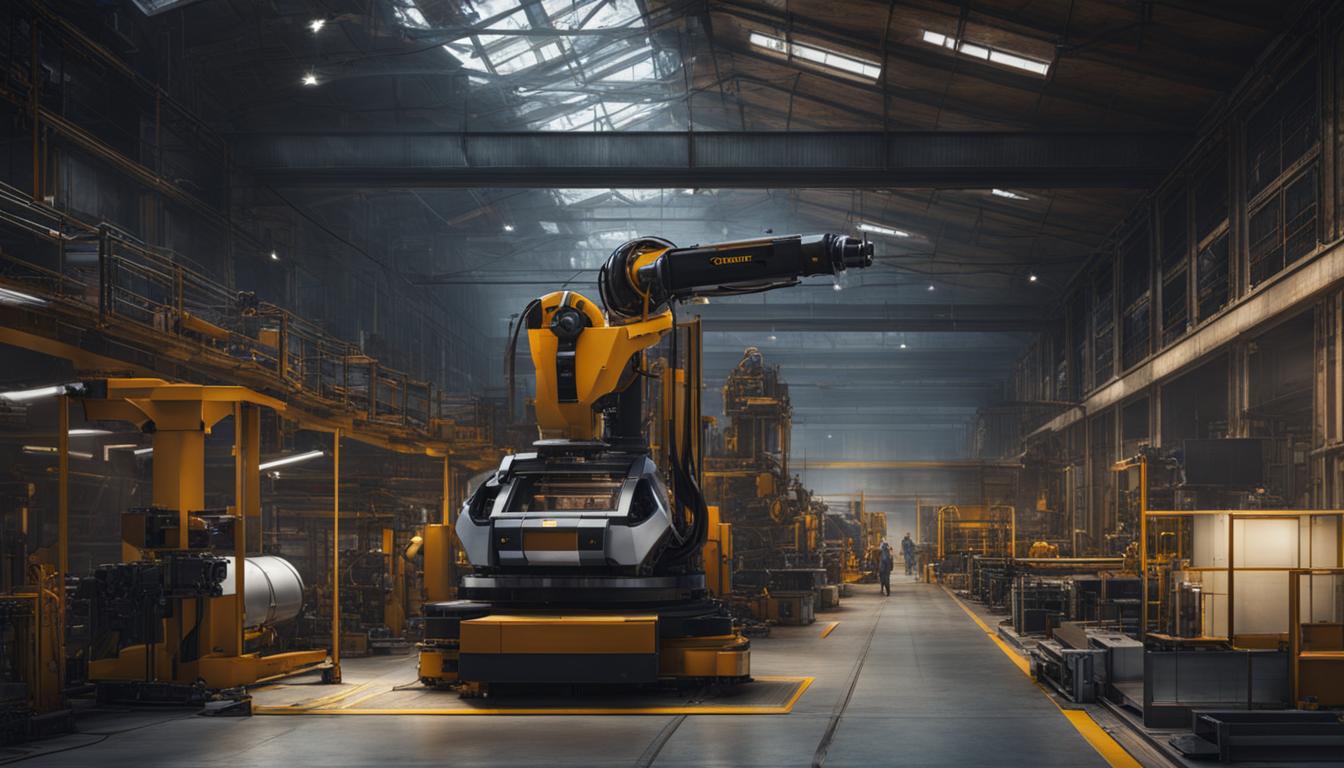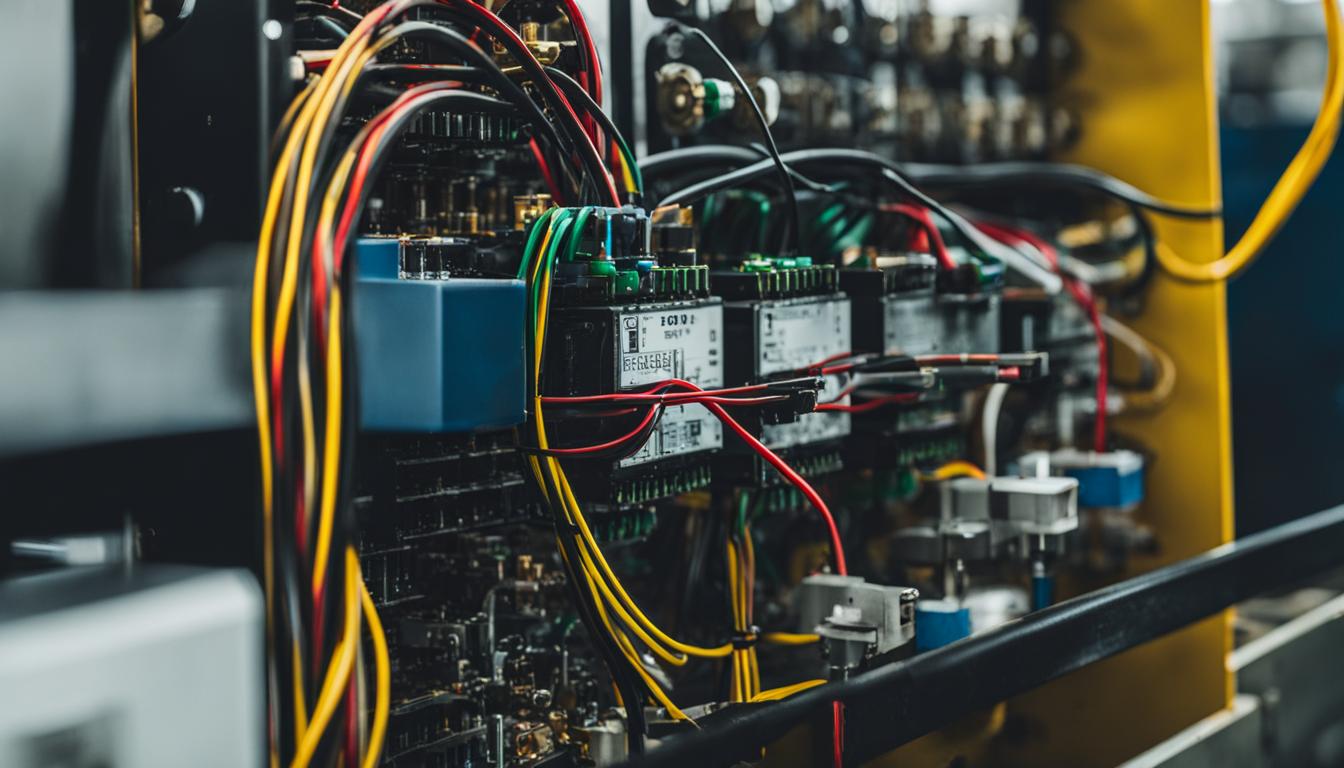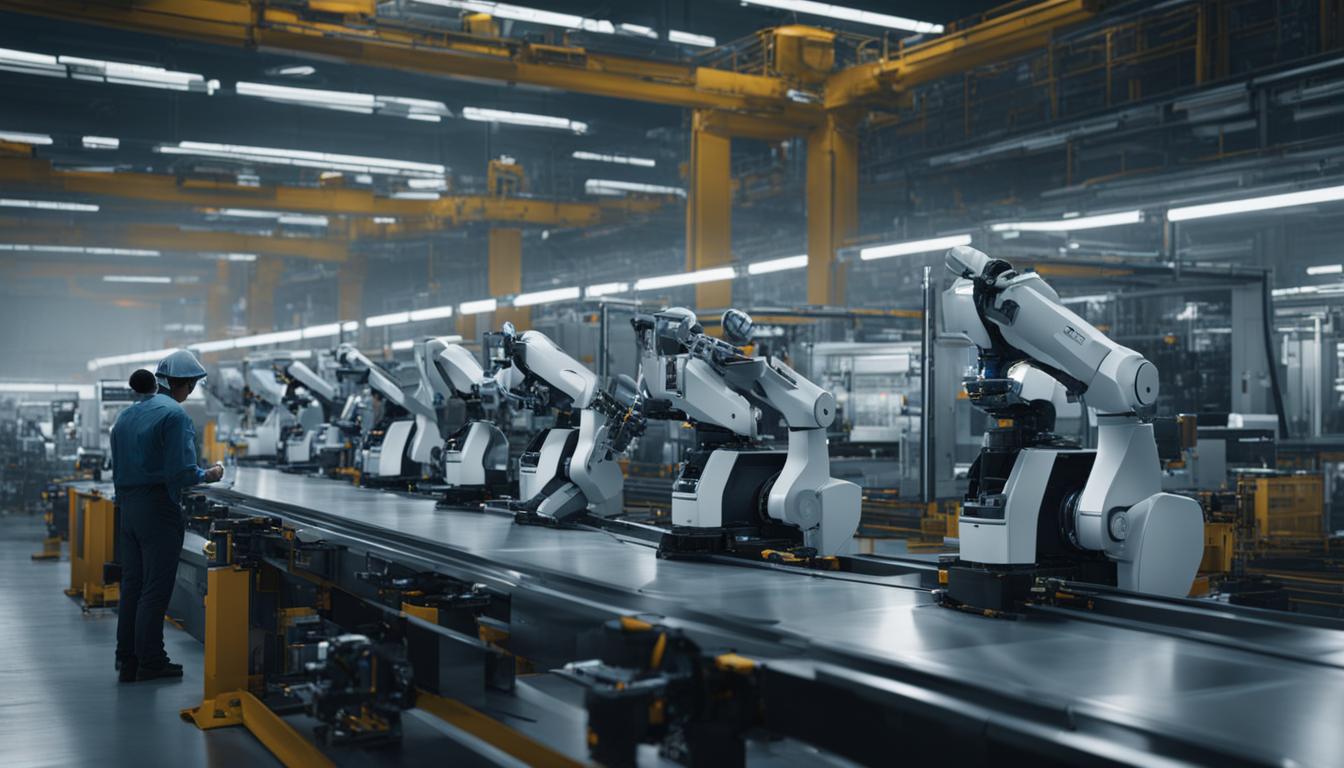Artificial intelligence (AI) is a transformative technology with the potential to revolutionize every aspect of our lives. From machine learning and deep learning to natural language processing, computer vision, and robotics, AI encompasses a wide range of innovations that are shaping the future.
In this article, we will explore the potential impacts of AI on society, both positive and negative. We will discuss the positive impacts of AI, such as increased productivity and economic growth, improved healthcare, enhanced safety and security, progress in scientific research, and better education and learning. At the same time, we will delve into the negative impacts, including job displacement, bias and discrimination, and loss of privacy.
As AI continues to evolve, it is crucial for businesses and individuals to understand its potential and prepare for the AI-powered future. By harnessing the power of AI through neural networks, data analysis, and predictive analytics, we can unlock new opportunities for growth and progress.
Key Takeaways:
- AI has the potential to positively impact society in various ways, including increased productivity and economic growth.
- Improved healthcare, enhanced safety and security, and progress in scientific research are also among the positive impacts of AI.
- However, AI can also pose challenges such as job displacement, bias and discrimination, and privacy concerns.
- Preparing for the AI-powered future involves investing in AI training and education, developing AI-powered products and services, and leveraging automation for increased efficiency.
- In order to fully capitalize on the opportunities presented by AI, it is essential to ensure responsible use and develop ethical AI practices.
Positive Impacts of AI
Artificial Intelligence (AI) has the potential to transform society and bring about numerous positive changes. In this section, we will explore some of the key ways in which AI can have a beneficial impact on various aspects of our lives.
Increased Productivity and Economic Growth
AI technologies can automate repetitive tasks and streamline workflows, helping businesses and individuals become more efficient. By freeing up human resources from mundane activities, AI allows them to focus on higher-value work. This increased productivity can lead to enhanced economic growth and innovation.
Improved Healthcare
AI has the potential to revolutionize healthcare by developing advanced diagnostic tools, predicting disease outcomes, and enabling personalized treatments. Machine learning algorithms can analyze vast amounts of patient data to identify patterns and provide accurate diagnoses. Additionally, AI-powered robots and virtual assistants can assist healthcare professionals in providing better care and support.
Enhanced Safety and Security
AI can greatly improve safety and security by developing advanced surveillance systems, detecting and preventing potential threats, and improving disaster response. AI-powered technologies, such as facial recognition and anomaly detection, can help in identifying and preventing criminal activities. Moreover, AI can analyze data from various sources in real-time, allowing for proactive decision-making to mitigate risks.
Progress in Scientific Research
AI has the potential to accelerate scientific research by analyzing vast amounts of data and identifying previously unknown patterns. AI algorithms can process complex scientific data and generate insights that aid in the discovery of new drugs, materials, and technologies. This can significantly advance our understanding of various scientific fields, leading to breakthroughs and innovations.
Better Education and Learning
AI can transform the education sector by personalizing the learning experience to individual needs and preferences. Adaptive learning systems can tailor educational content and assessment based on a student’s strengths, weaknesses, and learning style. AI-powered chatbots and virtual tutors can also provide immediate and personalized feedback, enhancing the learning process.
As we can see, the positive impacts of AI are diverse and far-reaching. From increasing productivity and economic growth to improving healthcare, enhancing safety and security, progressing scientific research, and revolutionizing education, AI has the potential to shape a better future for all of us.
Negative Impacts of AI
While AI has brought about numerous positive changes, it is crucial to acknowledge its potential negative impacts. Job displacement is one of the concerns associated with AI. As tasks are automated, there is a risk of job loss, which can have significant societal and economic implications.
Another significant concern is bias and discrimination in AI systems. These systems are trained on data, and if the data used is biased, it can lead to discriminatory outcomes. This poses a challenge as AI systems become more integrated into various aspects of society, ranging from hiring processes to healthcare decision-making.
Additinally, the collection and analysis of vast amounts of data by AI systems raise concerns about privacy and surveillance. As AI becomes more advanced, the potential for intrusion into personal lives and the compromise of sensitive information becomes more pronounced. It is imperative to implement robust policies and programs that prioritize privacy and ensure responsible data handling.
“With great power comes great responsibility.” – Uncle Ben
We must address these challenges proactively and develop frameworks that mitigate the negative impacts of AI. Responsible use of AI requires continuous monitoring and evaluation to identify and rectify potential biases and discriminatory practices. Additionally, transparent data handling practices and stringent privacy protection measures must be implemented.
Our commitment to addressing these issues will pave the way for the responsible and ethical integration of AI into our lives, ensuring a future that embraces the benefits of AI while safeguarding against its potential negative consequences.
Examples of Job Displacement Caused by AI
| Industry | Job Affected | Impact |
|---|---|---|
| Manufacturing | Assembly line workers | Massive layoffs due to automation |
| Transportation | Truck drivers | High risk of job loss with the rise of autonomous vehicles |
| Retail | Cashiers | Self-checkout systems reduce the need for human cashiers |

AI as an Opportunity for Growth
Despite the potential negative impacts, AI presents unprecedented opportunities for growth and progress. At our organization, we understand the importance of preparing for the AI-powered future and embracing its potential.
One way to prepare for this future is by investing in AI training and education. By staying up-to-date on the latest trends and technologies, businesses and individuals can acquire the necessary skills to harness the power of AI. Our comprehensive AI training programs equip professionals with the knowledge and expertise needed to develop AI-powered products and services.
Speaking of AI-powered products and services, they offer a significant advantage in today’s competitive market. By leveraging AI technology, businesses can deliver innovative solutions that cater to evolving customer needs. From chatbots to personalized recommendations, AI-powered products and services enhance user experiences and drive customer satisfaction.
Furthermore, task automation is a key benefit of AI. By automating repetitive and mundane tasks, organizations can improve efficiency and productivity. This allows employees to focus on more strategic and creative endeavors, driving overall business growth.
Another essential aspect of AI is its ability to personalize experiences. Whether it’s tailoring customer journeys, customizing educational content, or personalizing healthcare treatments, AI can create individualized experiences that delight and engage. By leveraging AI to personalize experiences, businesses and organizations foster loyalty and satisfaction among their customer base.
| Opportunity | Description |
|---|---|
| AI training and education | Investing in AI training and education to stay up-to-date on the latest trends and technologies. |
| AI-powered products and services | Developing innovative products and services that leverage AI technology. |
| Task automation | Automating repetitive tasks to improve efficiency and productivity. |
| Personalized experiences | Creating tailored experiences that cater to individual preferences and needs. |

Image: AI training and education
Conclusion
Artificial Intelligence (AI) has the potential to shape our society in profound ways. While it is important to acknowledge the potential negative impacts of AI, such as job displacement, bias, and loss of privacy, we must also recognize the abundant opportunities it presents for growth and progress.
By embracing the AI-powered future and making the necessary preparations, we can tap into its transformative potential. Investing in training and education will equip us with the skills and knowledge needed to navigate the ever-evolving AI landscape. Developing AI-powered products and services will enable us to stay competitive and meet the evolving needs of our customers.
AI can also automate tasks, freeing up valuable time and resources that can be channeled into more strategic initiatives. Moreover, AI enables personalized experiences for customers, students, and patients, fostering satisfaction and loyalty.
However, responsible use of AI is paramount. We must establish policies and regulations to ensure ethical AI practices that protect individuals and safeguard their rights. Through diligent and considerate implementation, AI can be a force for positive change, benefiting society as a whole.
FAQ
What is artificial intelligence (AI)?
Artificial intelligence (AI) refers to computer systems that can perform tasks that typically require human intelligence, such as learning, reasoning, problem-solving, and decision-making.
How does AI work?
AI uses various technologies, including machine learning, deep learning, natural language processing, and computer vision, to analyze large amounts of data, learn patterns, and make predictions or take actions based on the insights gained.
What are some examples of AI applications?
AI is used in a wide range of applications, including robotics, virtual assistants, autonomous vehicles, fraud detection, recommendation systems, personalized medicine, and predictive analytics.
What are the positive impacts of AI?
AI can increase productivity and economic growth, improve healthcare, enhance safety and security, contribute to progress in scientific research, and improve education and learning by personalizing experiences.
What are the negative impacts of AI?
AI can lead to job displacement, as tasks are automated, and raise concerns about bias and discrimination when trained on biased data. It can also raise privacy concerns due to the collection and analysis of large amounts of data.
How can businesses and individuals prepare for the AI-powered future?
Businesses and individuals can invest in AI training and education to stay up-to-date, develop AI-powered products and services, automate tasks, and personalize experiences to stay competitive and take advantage of the opportunities AI presents.
Is AI a threat to humanity?
AI is a powerful technology that can both benefit and harm society. Responsible use, ethical considerations, and the development of policies and regulations are important to ensure AI is used in a way that benefits everyone and minimizes potential harm.




